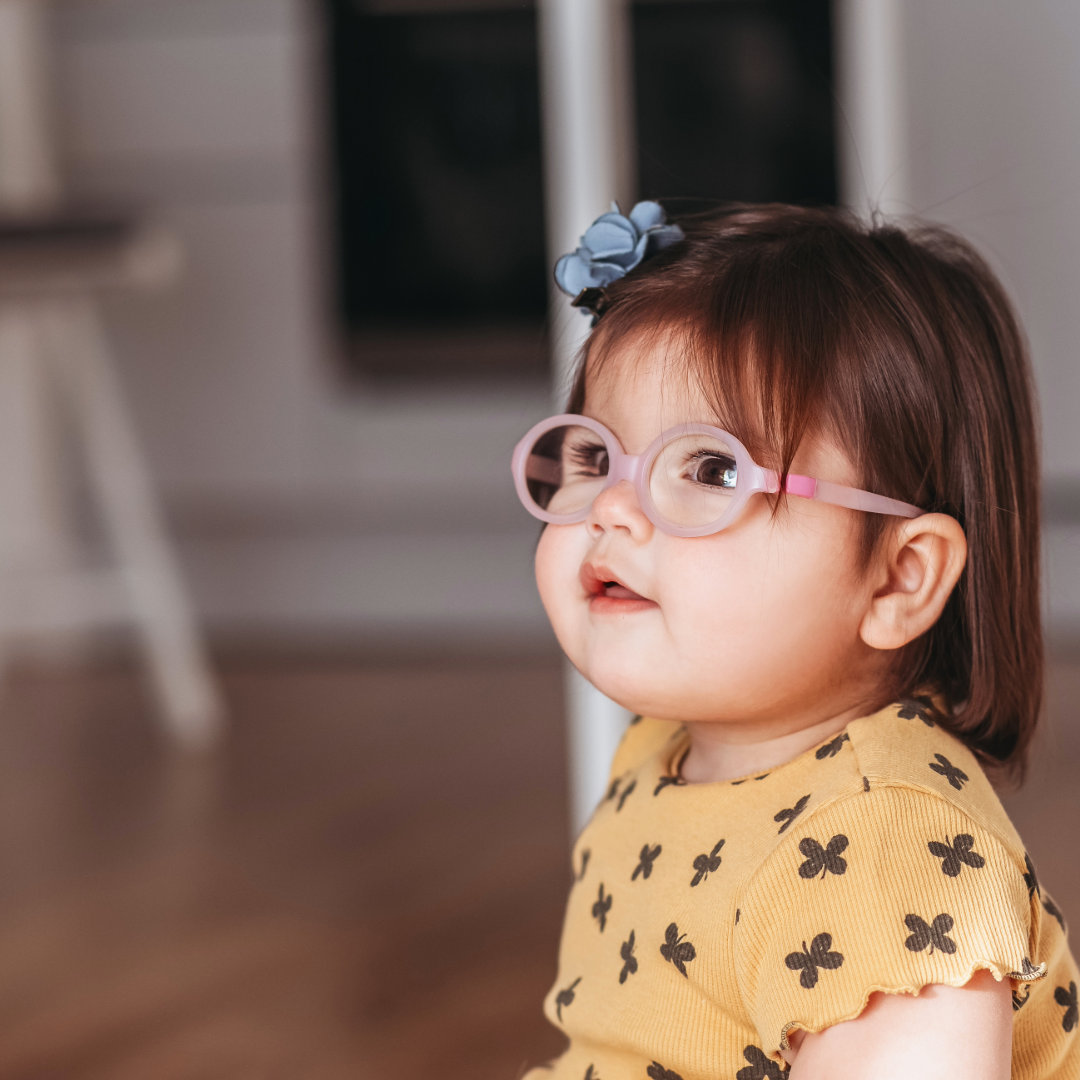
Does my baby really need an eye exam?
The American Academy of Ophthalmology and Optometry recommend all babies get their first eye exam between the ages of 6 months to 1 year. What happens during this eye exam and is it really necessary if your pediatrician is checking your baby’s eyes already? Find out more below!
Why should babies get eye exams?
Vision leads 80-90% of cognitive development in early childhood. Eyes are also a window into the health of the rest of the body. The eye is the only place in the body where you can view actual blood vessels directly without breaking the skin! Plus, the connection from the eye to the brain (the optic nerve) can also be seen using a non-invasive and painless technique. These are all amazing reasons to get your child’s eyes checked.
Congenital cataracts can prevent a child from ever seeing clearly, no matter how strong their glasses are. Was your child born prematurely? Their retina may not be fully developed and be at risk for detaching. Did you know babies can be born with tumors inside their eyes? How is your child going to tell you they’re having trouble with their eyes or vision when they can't even tell you if they're hungry or tired?
The good news is that all of these issues can be found during routine exams by a professional using non-invasive techniques. As a pediatric eye doctor, I can tell you the hardest part of checking a child’s eyes is getting the parent to call in and schedule the exam!
How do you even check a baby’s eyes?

In a comprehensive eye exam, your baby’s vision will be checked with a few instruments that involve light and lenses. The front and back of the eyes will be evaluated for any health conditions, their eye movements and pupils will be tested and we can even check their prescription without asking them “which one is clearer? One or two?” The doctor can also check if both eyes are seeing equally well, and a measurement of how clearly your child can see may be done with specialized tests involving black and white lines.
For your child’s first eye exam, your doctor may want to instill eye drops to get the best look inside your child’s eyes. These drops are perfectly safe and while they may cause your child to have extra blurry vision for a few hours, your baby will hardly notice! Most babies don’t even flinch since they aren’t as sensitive to eye drops as older children or adults. I actually have a harder time putting drops into adult eyes versus babies - so who’s the real baby here!?
Is my pediatrician doing the same eye exam during a wellness visit?
Pediatricians will routinely do a few of the tests I mentioned at your baby’s well visits, like checking your child’s pupils and making sure they can follow lights. Pediatricians are well-trained to pick up major eye conditions, however, they’re also busy checking lungs, heart, diaper rashes…it’s a lot for any one doctor to check at any visit! Think of the vision component of these pediatrician visits as a screener versus a full, comprehensive evaluation. If you’ve noticed anything about your child’s eyes or behavior that you are concerned about, tell your pediatrician so they can do more testing or refer to a specialist if they need to.
Remember, be open with your observations, parents are the best tools doctors have at noticing anything amiss with our tiny patients!
Does my baby really need an eye exam?
If a child passes their routine screening by their pediatrician, do they still need a full eye exam?
My opinion (and obviously that of optometrists and ophthalmologists) is yes.
Vision is so important to your child’s development. It’s incredibly beneficial to have their eyes checked more thoroughly. A deeper dive by a trained specialist gives your child a better chance of earlier detection of any issues which often means quicker and better outcomes. Many vision conditions are “silent”, where you won’t see or notice anything for a while. And even a toddler won’t be able to tell you their vision is wonky for a long, long time.
Having said that, as a parent of a toddler myself, I know there are so many barriers to actually getting your child in for any sort of appointment. Like I said before, the hardest part of doing an infant eye exam is getting the parent to pick up their phone to call the clinic. Parents have to worry about scheduling around naps, finding a pediatric specialist (which you definitely want to do in this case) and then there is the cost of the exam as well.
Don’t worry parents, let me help you break down some of these barriers in the next section!
How do I schedule an eye exam for my baby?
An eye exam may take between 20 minutes to over an hour depending on the testing that needs to be done. I highly recommend scheduling the exam after a nap or as the first thing in the morning for toddlers. Make sure you pack plenty of snacks and toys! A pediatric specialist should have their own ways of engaging your toddler, but a well fed, well rested child is obviously ideal. When making the appointment, you can ask the front desk how long the visits generally take and what the procedure is to help you plan best. If eye drops are recommended, you can choose to ask for that to be done on a separate visit if you can feel your child’s good-behavior-timer winding down.
For babies and infants, appointments are usually a little easier. Babies can sleep in their carrier and even get many tests done while they are sleeping! I’m not joking! I love doing this because it is a more peaceful experience for everyone (as long as I didn’t wake them up!).
How do I find an eye doctor for my baby?
The professional you are looking for here is either a pediatric optometrist (attended optometry school and then completed a pediatric residency) or a pediatric ophthalmologist (attended medical school and did further training for many years to become specialized). The main difference between the two is an ophthalmologist is qualified to perform surgical procedures where an optometrist is not. Think of an optometrist as the primary care doctor for the eyes, and an ophthalmologist as a surgeon. For the purposes of an infant or toddler eye exam, you can see either.
Pediatric optometrists may be easier to find, given that pediatric ophthalmologists may only see patients in a hospital setting or as referrals, instead of routine exams. Pediatric optometrists should generally have good relationships with the ophthalmologists in their community since they often refer patients who require further testing and possibly surgery. Here you can search for pediatric optometrists and ophthalmologists near you (select pediatrics as the "subspecialty") and of course, schedule with whichever professional you feel most comfortable with.
How much does an eye exam for an infant cost?
Most vision insurances will cover the cost of a child’s annual eye exam and provide an allowance towards purchasing glasses if they are prescribed. Children under 18 are also generally eligible for Medicaid which covers basic vision care (including an infant or toddler exam). There is also a public health program called infantSEE. If you find a provider through this program, the vision exam is free under the age of 1, no insurance required. It's important to note, however, that if something is found in that exam, any follow up visits, treatments, or glasses will not be covered.
If you're interested in searching for doctors participating in infantSEE near you, click the link here.
Advocating for Children’s Vision
As a pediatric optometrist, it’s not surprising I’m advocating for kids to get an eye exam. I truly believe they are beneficial for all children. I’ve seen so many conditions get picked up early through these routine evaluations. As a parent, however, I know how hard it is to get anything done! So, if you haven’t done this already, please don’t feel guilty. There are a million things on your plate already! All I recommend is that you put this on your to-do list for when you have a moment of calm and can get this exam scheduled.
If you’re looking for an activity to do with your little one at home and you’re interested in trying out a few easy infant eye exam techniques to see how your child is doing, check out one of our earlier blogs here. And as always, feel free to reach out with any questions or if you need help locating a specialist in your area!

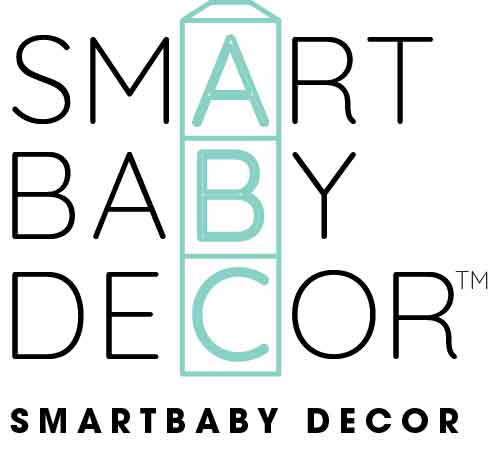
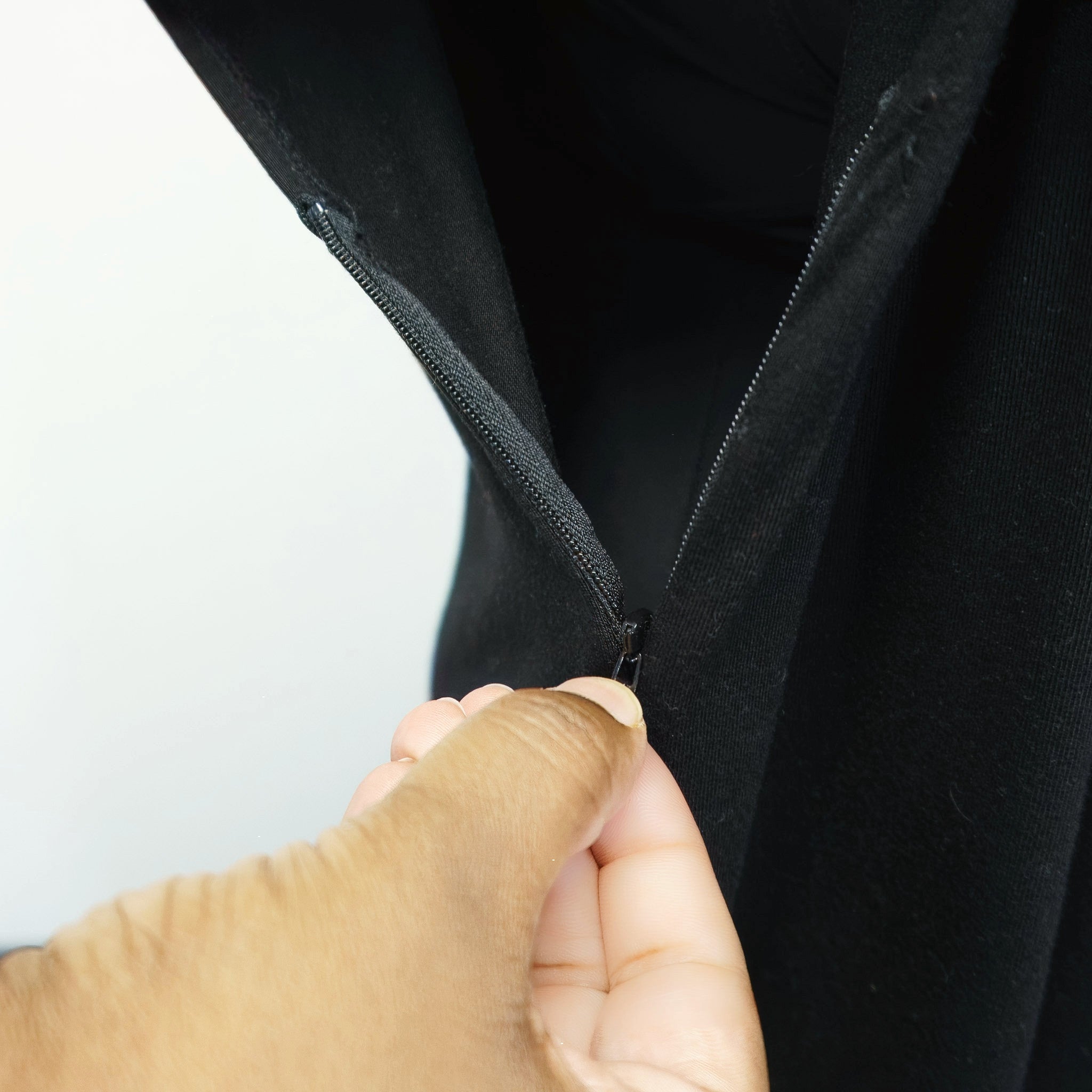
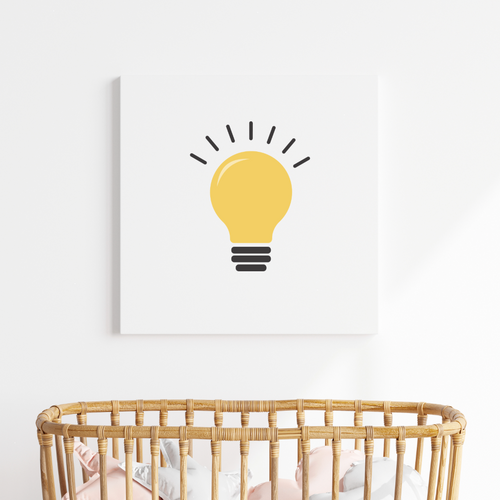

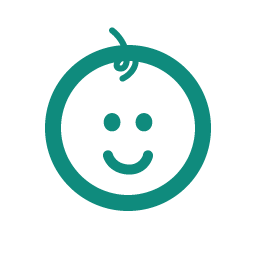
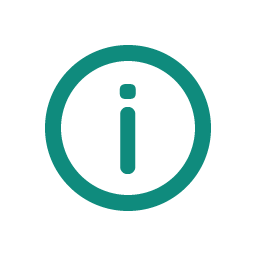
Leave a comment
This site is protected by hCaptcha and the hCaptcha Privacy Policy and Terms of Service apply.